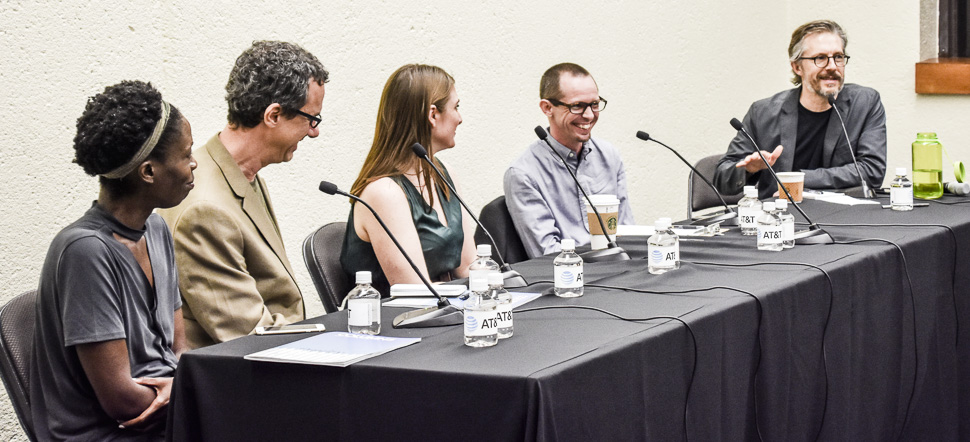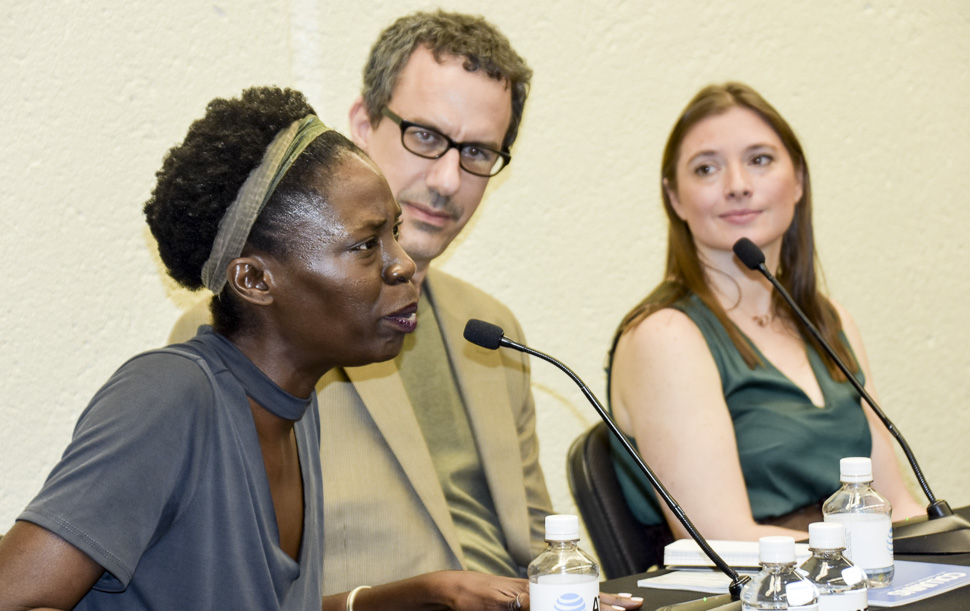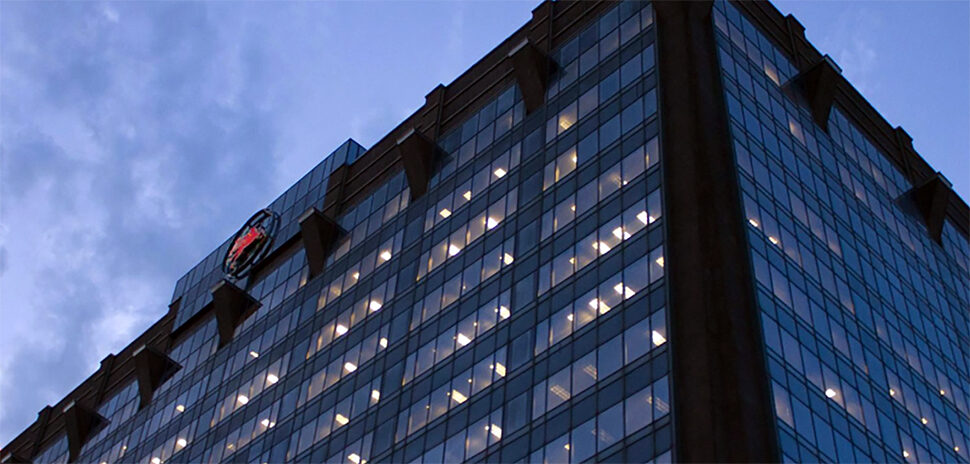While the 2017 Dallas Festival of Ideas moved indoors Saturday because of dark, threatening skies, its speakers talked about a brighter future for the city of Dallas, one based on equity for all its citizens regardless of where they live in the city.
The threat of bad weather moved the event to the Kay Bailey Hutchinson Convention Center from the City Hall Plaza, but the weather didn’t dampen the enthusiasm of organizers or attendees.
According to organizers, The Dallas Festival of Ideas celebrates ideas that are designed to “ignite, unite, and energize the people of Dallas to help build the city of the future.”
The event featured a series of panel discussions, performances, and art installations. This year’s event also was coupled with the Dallas Book Festival at the nearby J. Erik Jonsson Central Library.
FESTIVAL OF IDEAS FEATURED PANELS ON CITY PERSPECTIVES
To kick off the event, five keynote speakers established a framework of topics — or “city perspectives” — that would be addressed: the physical city, the healthy city, the cultural city, the educated city, and the entrepreneurial city.
Culled from community forums held this spring and last fall, each of the themes were debated in a series of breakout discussions that the festival’s organizers hope will lead to tangible, impactful strategies that bring ideas to life in Dallas.
During a discussion on the entrepreneurial city, moderator Jeff Whittington of KERA asked panelists whether Dallas is a good place to start a business.
“There are quite a few barriers for especially low-income folks to get into the big-dollar business park in Dallas,” said panelist Tisha Crear, citing personal experiences with bureaucratic hurdles and city politics. Crear runs Susu Cultural Business Incubator & Co-Op, and she highlighted the challenges and frustrations that entrepreneurs of color often face in Dallas.
“… we have to not just innovate businesses, not just innovate a good idea or a tech idea. We have to innovate the business model itself.”
Salah Boukadoum
Panelist Salah Boukadoum, of Impact City Initiative and Soap Hope, agreed, but posed a question about barriers that face disenfranchised groups and how to tackle them.
“Do you drive capital into those environments where they’re statistically going to produce lower returns because of existing barriers, or do you work on the barriers first?” Boukadoum said. “My answer to that is, we have to not just innovate businesses, not just innovate a good idea or a tech idea. We have to innovate the business model itself.”
Boukadoum continued: “We can’t expect our governments to do that, we can’t expect our banks to do that, we can’t expect our [venture capitalists] to do that. But the people in this room — they can do it through the choices that they make about where they shop, where they invest, what they talk about with their friends, who they encourage to go to what events, or support what businesses.”
He said that people “have a responsibility as a community to become more aware about how our own communal actions either empower or disempower women, minorities, and anybody else who’s been disadvantaged in the past.”

To encourage entrepreneurship that elevates and empowers communities in Dallas without compromising their existing culture, residents must vote in city elections and support initiatives that value homegrown ideas and local innovation, panelists said.
Panelists also debated the best ways to invest in the city and tackle barriers such as poverty, access to education and health care, and gentrification under the guise of growth that essentially forces neighborhoods to hit “reset” on their cultural roots.
ESTABLISH A PERSONAL STAKE IN THE NEIGHBORHOOD
One way to move forward, panelists said, is to take a page from developers such as Monte Anderson who live and build relationships in the communities in which they invest, establishing a personal stake in the neighborhood.
To achieve equity for all of Dallas’ entrepreneurs, the city would need to be united rather than a cluster of neighborhoods, panelists agreed.
“One of the key things that we need to do as people is to expand our sense of neighborhood.”
Salah Boukadoum
“One of the key things that we need to do as people is to expand our sense of neighborhood,” Boukadoum said. “You have to expand your sense of who your neighbors are, and your personal commitment to them, and your personal relationships with them, and your emotional investment with them before you really have a chance of making a difference there.”
Other panelists on entrepreneurship were Justin Nygren of The Grove, and Jennifer Sanders of the Dallas Entrepreneur Center.
The 2017 Dallas Festival of Ideas was presented by the Dallas Institute of Humanities and Culture and The Dallas Morning News. It was sponsored by Dallas-based AT&T Inc. and by Bank of America.
READ NEXT
What’s the Big Idea at Dallas festival? Building Bridges to Create a More Just City
Photo Gallery: 2017 Dallas Festival of Ideas
Delivering what’s new and next in Dallas-Fort Worth innovation, every day. Get the Dallas Innovates e-newsletter.






























